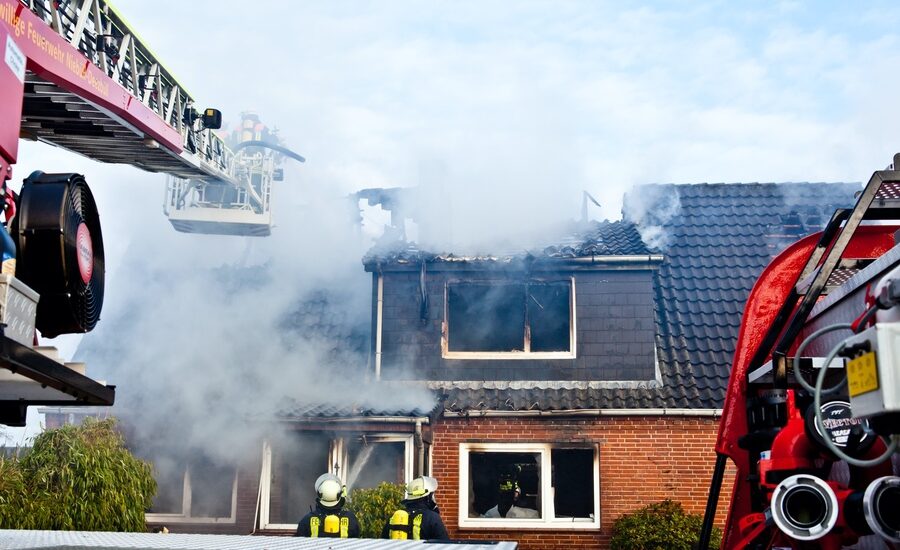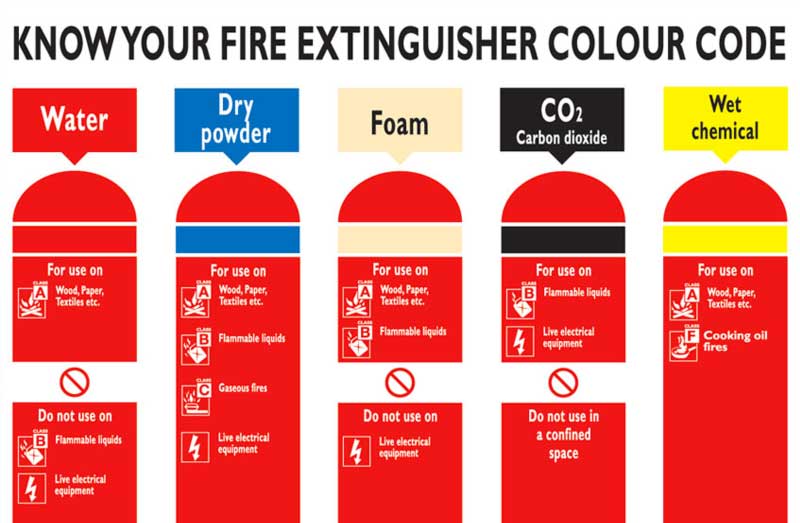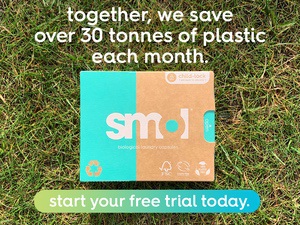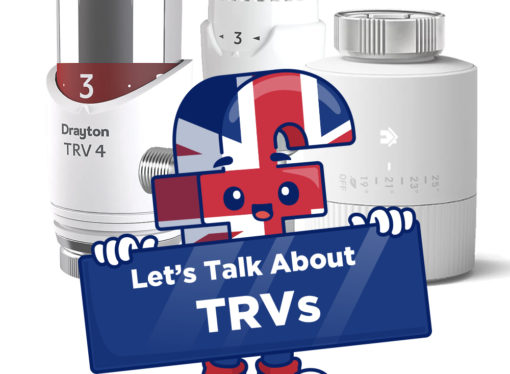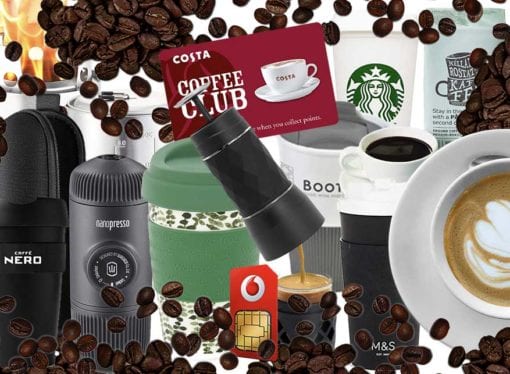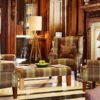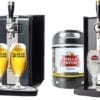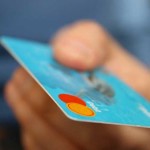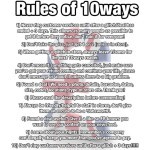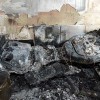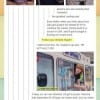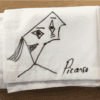Each year accidental fires account for 85% of the fires caused in houses with around 219 deaths a year (2013-14)
The most common fires are from Cooking Appliances, these tips may seem obvious to many people however they’re still the most common ways people die each year from fires
Chip pan fires / Hob fires
Thankfully these are becoming less and less common due to devices like ActiFry & AirFryer however they are still extremely dangerous and to the untrained person can cause awful damage. We know one family who have had 5 house fires because of them!
Watch out for loose clothing (especially polyester dressing gowns) near open flames and ensure you don’t leave pans on the heat when leaving the kitchen.
Be careful not to leave oven gloves, dish cloths etc near the oven and ensure you don’t leave kettle, toaster etc cables near oven tops.
Keep your oven clean (especially watching out for grease build up)
It doesn’t sound like a fire hazard but it could be if left to build up. Especially common is grease left from under the grill. If you’re too lazy to clean it then buy some rolls of tin foil. Line the grill pan with foil and chuck away after each use. Yes it’s expensive but cheaper than paying for a new house or paying insurance excess!
Ensure Candles / Cigarettes / BBQs / Fires are 100% put out
It sounds so obvious but ensure they’re put out properly. 80 of the 219 deaths in 2013-14 were directly from smoking related fires!
Also never bring BBQs inside (or in a tent) after use, even when completely out it can give off deadly carbon monoxide fumes.
Never smoke near soft flammable cushions/bedding etc
Alcohol or Drugs + Cooking = Extremely stupid idea
We’ve all burnt a pizza after leaving it in for too long and it’s often something we all laugh about the next morning with friends but actually it’s extremely dangerous, especially when people pull out the frying pan or chip pan.
Look after your drunk mates and they will return the favour one day.
Space heaters / portable heaters + anything fabric = flames!
Be extremely careful. Read the owners manual. Don’t use extension cables with them. Ensure it’s on a solid & firm base.
Ensure your home electricity / wiring is safe/checked (legal requirement for rented)
There are literally hundreds of possible fire hazards due to poor wiring, overloaded circuits etc. Obvious signs are fuses that blow regularly, flickering lights, loose cables, frayed cables, soot/signs of smoke around anything electrical.
If you’re unsure get it professionally tested. Never touch a bare wire just in case.
Don’t place charging phones/devices under your pillow or under your body
Always charge devices on a non flammable surface, ideally so you can keep an eye on them (i.e. during the day). If cable length is an issue grab a 6ft cable (iOS / MicroUSB)
Do you put your phone under your pillow when you go to bed? Bad idea. pic.twitter.com/CwyoCfrUy2
— WestMidsFireService (@WestMidsFire) August 5, 2015
Don’t use cheap power adapters
Instead of buying super cheap USB power adapters, look at buying decent chargers with great reviews from reputable brands like the Anker 5 Port Charger or if you’ve got a dodgy/broken Apple one see if you can get it replaced
Our Facebook followers share their near misses with dodgy chargers. Can you spot an #iFake? http://t.co/5OSh1QwWlypic.twitter.com/jbTw8D9vHT — London Fire Brigade (@LondonFire) August 18, 2015
Don’t use cheap rechargeable batteries
With the recent EE Power Bar Fires, it’s become apparent that some batteries are not up for the job and can explode into fire balls.
The best thing to do is keep an eye on well reviewed products, we list the ones we use on our ‘recommended products list‘
Only buy batteries that you know are safe and from reputable brands such as Anker.
Be careful with cheap knock off cuddly toys etc directly sold from China
There are tons of these products entering the UK market from non tested factories. Be careful and if possible test a small area to see if it’s flammable.
Look for CE marks on products however remember these are extremely easy for manufactures to fake.
Precautions to take:
Fit / Maintain your smoke/heat alarms.
You are half as likely to die in a house fire if you have a working smoke alarm. If a fire starts in your home, a smoke alarm gives you the time to get out.
The batteries might cost you a few quid but is it really worth the risk? Lots of them now have 10 year batteries included. Near kitchens install a ionisation alarm with a ‘hush’ function, this basically means it’s very sensitive (ideal for quick fires) but it also have a 10 minute silence function for when you’re browning those tasty steaks!
Have a fire extinguisher at home + in multiple rooms for added protection
Although it’s not recommend that you tackle a fire alone having one (or like us several) in your home could help save your lives or help you save your property: We have 1 x CO2 in office (for electrical fires), foam in back lobby/utility area + another foam upstairs, small powder by front door + 1 in each car. It’s extremely important to have fire blankets in the kitchen.
It’s important to remember that you should focus on getting yourself and everyone else out of the property FIRST
The best setup for the average family would be:
- 2 x Foam 6 Litre or 3 Litre for wood, paper, textiles, fabric etc – (they outperform water versions + slightly safer near electrical items compared with water)
- 1 x CO2 extinguisher (for electrical fires)
- At least 1 fire blanket for clothing fires, chip pan, oil fires etc
- Ensure you and everyone in your family knows how to use them SAFELY.
If you’re tight on space then a powder (general purpose) will work instead of one of the Foam however remember the powder makes a MASSIVE mess, so for a small fire you can end up causing more damage from the powder + if you get it near electrical equipment it can cause damage.
Check your property or get the local fire department to come and check (free)
Yes often they will come and do a free home safety visit (example), it’s part of their job but don’t take the p*ss however most of the information can be found online, but speak with your local fire station (or check their website) for more details.
2 comments

